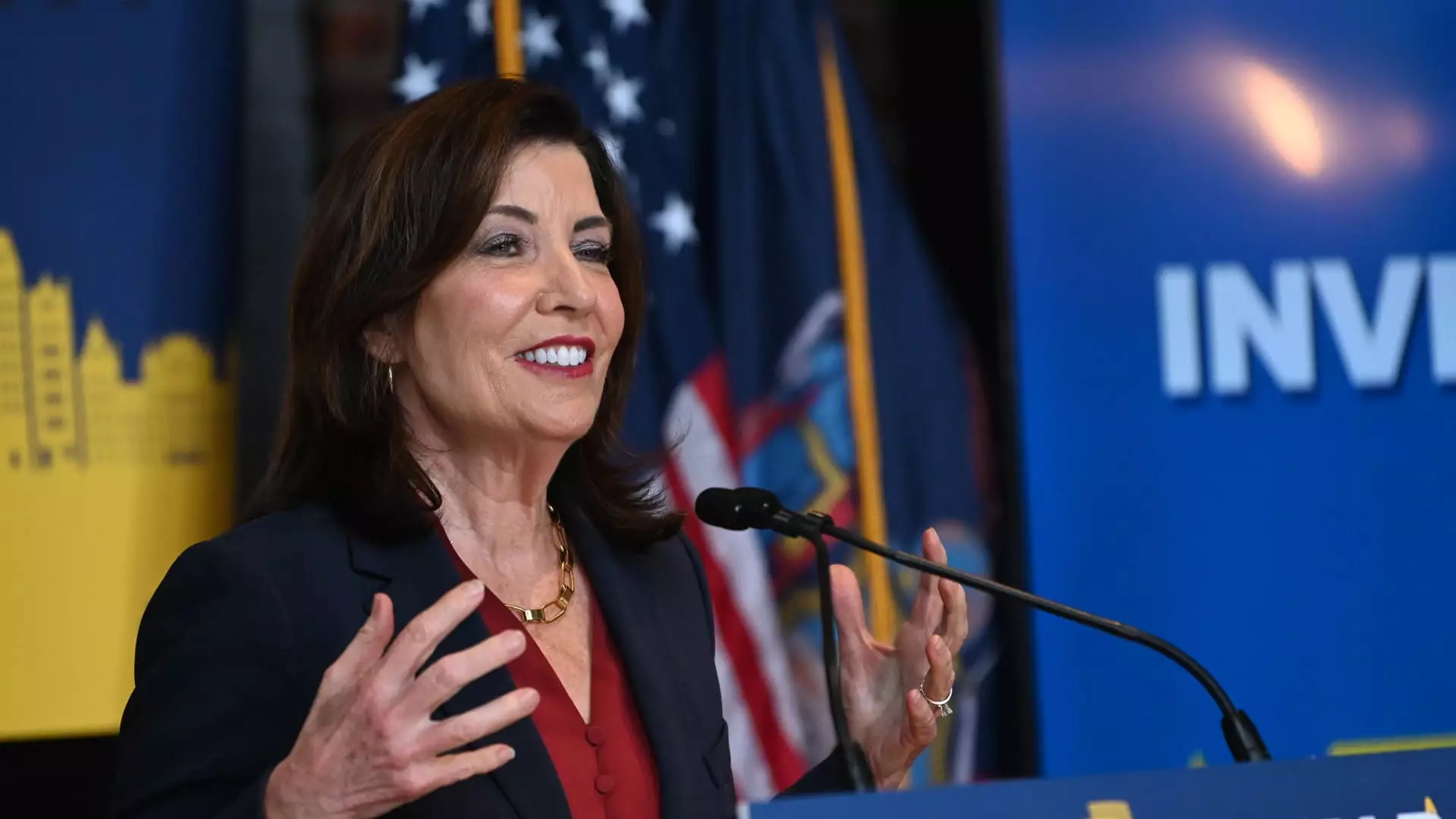New York’s recent announcement of a one-time inflation refund might seem like a generous gesture at first glance. Over 8 million residents will receive checks ranging from $150 to $400, a modest sum designed to cushion the blow of rising prices. However, beneath the surface lies a sobering reality: this initiative, while temporarily alleviating some financial stress, ultimately serves as a superficial fix that sidesteps deeper economic concerns. It offers fleeting solace rather than meaningful change, sidestepping the systemic issues that fuel inflation and economic insecurity.
The Limitations of a Quick Fix
The distribution of these refunds is largely a procedural formality; no application is necessary, and recipients receive their checks based on filing data. The strategy rests on the premise that small cash infusions can offset inflationary pressures. But what does $150 to $400 really accomplish amid surging living costs, skyrocketing rent, and stifling healthcare expenses? It’s a drop in the bucket—a symbolic gesture that fails to tackle the root causes of inflation or provide long-term stability. Instead of structural reforms or policies aimed at controlling inflation, the state is merely passing forward a temporary relief measure that will be gone in an instant.
Economic Palmistry or Political Performance?
This rebate signals an opportunistic attempt by policymakers to appear responsive, but it falls into the trap of short-term politicking. Governments often lean on such temporary measures to garner favor, shaping perceptions of action without addressing the systemic issues that caused the problem. Meanwhile, the revenue boost generated by inflation—profitable for states reliant on sales taxes—becomes a justification for these checks, framing inflation as an opportunity rather than a crisis. This perspective subtly shifts the narrative away from accountability and toward optics, making regular residents bear the brunt while governments indulge in election-year superficiality.
Disregard for Broader Economic Justice
In a society facing widening economic disparities, blanket rebates can be a double-edged sword. They overlook the fact that many of the most vulnerable — low-income workers, small business owners, and essential service providers — are the ones who feel the heavy burden of inflation most acutely. Instead of proportionate aid that addresses hardship where it’s most severe, these refunds are a one-size-fits-all Band-Aid, reinforcing the illusion that small cash infusions can stamp out complex economic injustices. True economic justice demands policies that address inequality at its core—wage stagnation, lack of affordable housing, and insufficient social safety nets—none of which are remedied by a one-time check sent in the mail.
Beyond Immediate Relief: A Political Debate in Disguise
The broader political conversation around these rebates reveals a deeper confrontation about economic priorities. Republican proposals like the American Workers Rebate Act aim to extend direct payments, but such measures face opposition and are limited in scope. These debates expose an underlying distrust of corporate influence, tax policies, and federal regulatory frameworks. The Republican focus on rebates as a form of direct economic stimulus contrasts sharply with the centrist liberal acknowledgment that meaningful change requires a reevaluation of systemic policies—like fair wages, affordable healthcare, and comprehensive inflation controls—rather than sporadic monetary patches.
What Should Be the Real Priority?
The question remains: are these rebate checks a sign of government ingenuity or a testament to its inadequacy? For many, the immediate temptation is to spend the refund with optimism, investing in their future or eliminating high-interest debt. But for the society at large, this gesture suffers from a critical flaw—it offers no structural remedy to the inflation crisis that afflicts countless working families. Policymakers should shift focus away from superficial fixes and toward long-term strategies that promote economic resilience, ensuring that prosperity is accessible, sustainable, and fair. Until then, these refunds remain a token gesture—an ironic acknowledgment of failing economic policies disguised as compassion.

